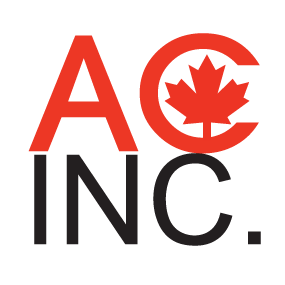The Express Entry system is the new Canadian immigration selection system, It strives to make the immigration process simpler and quicker for candidates.
Express Entry is not an immigration program in itself, but rather a system used by Immigration, Refugees and Citizenship Canada (IRCC) to select candidates for immigration to Canada using the following economic immigration programs:
- Federal Skilled Worker Class
Federal Skilled Trades Class
Canadian Experience Class
a portion of the Provincial Nominee Programs
The Express Entry Process
Determine your eligibility
Candidates eligible to immigrate to Canada under a federal economic immigration program may enter the Express Entry pool. Consequently, the first step to be taken should be to determine your eligibility for one of these programs.
By completing the free assessment form, you will be able to determine whether or not you are eligible to enter the Express Entry pool. Our team will review your completed form and quickly let you know whether or not you may be eligible.
If you are eligible, you can move on to the next step in the process.
If you are not currently eligible, you may strive to become eligible by improving your core human capital factors in areas such as your skills, work experience, language ability, and education credentials. Becoming eligible for one of the federal economic immigration programs is the first step toward immigrating to Canada through Express Entry.
We help you to prepare an accurate application going into the pool.
We provide job alerts related to your occupation and build connections between candidates and Canadian employers. This increases your chances of landing a skilled job and being invited to apply.
We review all of your supporting documents, submit your application within the time frame set, and track it all the way while communicating with the government on your behalf.
Please select from the three options at the top of this page, depending on where you are in the process.
Complete an online Express Entry profile
Candidates for Canadian permanent residence who are eligible for one of the federal economic immigration programs make an expression of interest in immigrating to Canada by creating an online profile. They provide information about their skills, work experience, language ability, education, and other personal information.
Candidates who meet the criteria of one of the aforementioned federal economic immigration programs are placed in a pool of candidates who are ranked according to a Comprehensive Ranking System. If a candidate does not already have a valid job offer from a Canadian employer or a provincial nomination, he or she may register with Canada’s Job Bank. As of June 6, 2017, registration in Canada’s Job Bank is no longer mandatory. However, registering in the Job Bank may improve a candidate’s visibility to Canadian employers.
Improve your profile and ranking
Candidates in the Express Entry pool are ranked according to the Comprehensive Ranking System, which ranks candidates under the following components:
- core human capital factors;
accompanying spouse or common-law partner factors, if applicable;
skill transferability factors; and
factors relating to a provincial nomination, qualifying offer of arranged employment, Canadian study experience, a sibling in Canada, and/or French language ability.
There is a total of 1,200 points available under the Comprehensive Ranking System (CRS).
The Government of Canada selects candidates from the Express Entry pool according to their ranking. Accordingly, it is in a candidate’s best interests to strive to improve his or her ranking in the Express Entry pool in order to maximize his or her chances of receiving an Invitation to Apply for permanent residence.
Receive an Invitation to Apply and submit your application for permanent residence
The government of Canada and provincial Governments, as well as Canadian employers, are able to select new immigrants from the Express Entry pool.
The highest-ranked candidates (i.e. candidates considered to have the best chances for economic success in Canada), and those with valid job offers or provincial nominations, are then invited to apply for Canadian permanent residence. From this point, candidates have 90 days to submit an electronic application for permanent residence. IRCC aims to process applications within six months of the date of submission.
Candidates must ensure that they complete all necessary forms and submit all supporting documents within this timeframe. On completion of the process, successful candidates and their dependents (spouse and children) will land in Canada as permanent residents.
Candidates in the Express Entry pool who do not receive an Invitation to Apply for permanent residence in Canada after 12 months may resubmit their profile and re-enter the pool if they still meet the criteria of at least one of the economic immigration programs.
- How to prepare for Express Entry
Prepare for language exams
- English language testing, including the International English Language Testing System (IELTS) — General test and CELPIP: Canadian English Language Proficiency Index Program — General Test.
- Try the IELTS Preparation Online Course — prepare and get the results you need to immigrate to Canada.
French language testing, including the Test d’évaluation du français (TEF Canada), and the Test de connaissance du français (TCF Canada).
- Get your foreign credentials assessed according to Canadian standards.
- Learn more about the Comprehensive Ranking System (CRS) and use the free CRS Calculator tool.
Deal with any medical inadmissibility or criminal inadmissibility issues you may have.
Browse available Provincial Nominee Programs that have an enhanced stream aligned with Express Entry.


